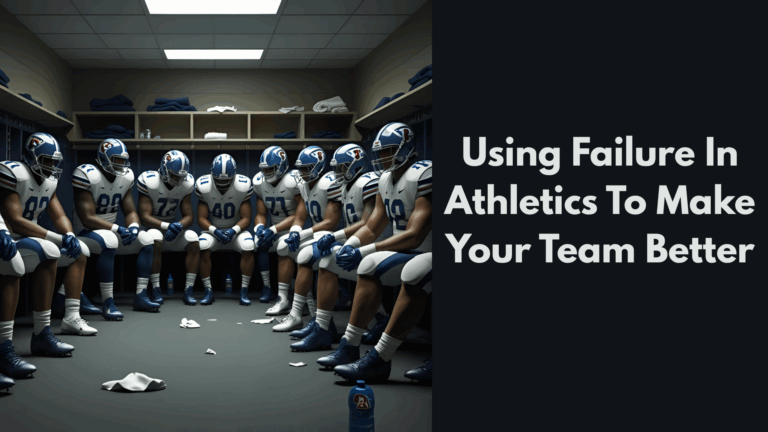
Many coaches dream of taking their careers beyond the field, exploring leadership roles in sports organizations. Transitioning from coaching to leadership offers new challenges, responsibilities, and rewards. While coaching focuses on player development and game strategy, leadership roles require a broader vision, including managing teams, budgets, and organizational goals.
Whether becoming an athletic director, sports program coordinator, or general manager, these positions allow coaches to shape sports programs on a larger scale. Success in these roles requires strong communication, decision-making, and strategic planning skills.
Additionally, understanding sports administration, networking, and continued education can help ease the transition.
In this article, we’ll explore the essential skills and steps needed to move successfully into leadership.
Exploring Leadership Roles in Coaching Careers
For coaches seeking to transition into leadership positions, several exciting opportunities are available that leverage their expertise and passion for sports. One prominent role is that of an athletic director, who oversees sports programs and budgets. They also hire and manage coaching staff while ensuring compliance with regulations.
Another option is becoming a sports program coordinator, a role focused on developing and managing sports programs. This position also involves handling logistics, budgeting, and recruiting athletes and staff. It’s ideal for coaches who enjoy organizing events and managing operations behind the scenes.
For experienced coaches passionate about mentorship, the role of head of coaching is a perfect fit. Responsibilities include training and mentoring coaches, designing coaching programs, and evaluating the effectiveness of coaching strategies.
Lastly, the role of general manager (GM) of a sports team combines strategic decision-making with business and team management. GMs are responsible for player recruitment and contracts, overseeing the financial and operational aspects of the team, and making key strategic decisions.
This role is in high demand, particularly in college sports, where salaries for GMs have surged in recent years. For example, Courtney Morgan signed a three-year deal with Alabama, earning over $800,000 annually as the highest-paid GM in college football. Meanwhile, On3 notes that James Blanchard, GM at Texas Tech, recently doubled his salary to $400,000 annually.
How to Develop Leadership Skills as a Coach
To excel in leadership roles, coaches must cultivate a range of skills that extend beyond their coaching expertise. Leadership positions often demand a combination of education, networking, and hands-on experience.
Education and Certifications
Pursuing degrees in fields such as sports management is a strong foundation for leadership development. Coaches can also benefit from continuous learning through leadership workshops and training programs.
Coaching primarily focuses on athlete performance and team success. However, sports leadership has a growing emphasis on health, injury prevention, and overall athlete wellness. Many athletic directors and sports administrators work closely with healthcare professionals. They ensure players receive proper medical attention, rehabilitation, and wellness support.
Advanced degrees can be highly beneficial if you are a coach aiming to step into athletic wellness or healthcare-focused leadership. Programs such as an MBA (Master of Business Administration) or an MBA to DNP program offer valuable insights.
These programs provide a unique blend of business and healthcare leadership skills. This is basically a dual-degree program that combines business administration knowledge with advanced healthcare practice.
According to Baylor University, such programs build competencies in influential leadership, data-driven business strategy, and transformative care models. Graduates gain advanced business acumen, leadership skills to overhaul healthcare systems, and access to a network of colleagues and mentors.
Networking and Mentorship
Gaining practical experience is a critical step in building leadership skills. Coaches can take the initiative by participating in managerial roles within sports organizations. These roles include handling budgets or planning events to understand leadership responsibilities better.
Additionally, professional networking platforms like LinkedIn offer valuable opportunities to connect with a broader range of individuals. A specialist interviewed by Harvard Business Review noted that LinkedIn allows users to reach out to virtually anyone they have a connection with.
This includes acquaintances or friends of friends. Moreover, although these connections are often called “weak ties,” studies have shown that they help people find jobs and grow careers.
Finding Job Opportunities in Leadership
To successfully transition, coaches must actively search for job openings and tailor their applications to highlight their transferable skills.
Along with platforms like LinkedIn, university and school district websites often post job openings for athletic directors and other leadership positions. Additionally, sports organizations and governing bodies, such as the NCAA and NFHS, provide listings for various roles within the sports industry.
Once you identify job opportunities, tailoring your resume and cover letter is crucial to stand out to hiring managers. Highlight your leadership experience, even if it comes from informal roles, as these can demonstrate your capability to lead.
Erin ImHof from CertiK emphasizes the importance of aligning the language in your resume with keywords from the job description. She shared with Forbes that you should ensure your application resonates with hiring managers.
Once you have landed the job interview, here is how to ace it:
- Prepare for Scenario-Based Questions: Be ready to discuss how you would handle challenges like budget cuts or conflict resolution.
- Demonstrate a Vision: Share ideas for improving operations, recruitment, or player development in the role you’re pursuing.
- Showcase Adaptability: Highlight past transitions and how you successfully navigated new responsibilities.
FAQs
1. What is the highest salary for a sports manager?
A: Sports management salaries vary based on experience, location, and industry. In California, salaries range from $39,500 to $54,300, with top earners making up to $74,017 annually. The highest salaries in the field can exceed $80,000, especially for those managing professional teams or working in executive roles.
2. Why do sports leaders need confidence?
A: Confidence is essential for sports leaders because it helps them inspire and empower their teams. Leaders who project confidence create a motivating and supportive environment, encouraging players to perform at their best. On the other hand, leaders who express doubt or fear may negatively impact team morale and performance, making confidence a key trait for success.
3. What degree do you need to be a sports director?
A: A bachelor’s degree in Sport Management is typically required to become a sports director. This degree provides foundational knowledge in athletic administration, sports marketing, finance, and leadership, preparing individuals for roles in school, college, or professional sports organizations. Strong organizational and communication skills are also essential.
The journey from coaching to leadership is challenging and rewarding, offering coaches the chance to impact sports on a broader scale. Success in these roles demands technical expertise, strategic thinking, and interpersonal skills. By pursuing education, building professional networks, and seizing growth opportunities, coaches can position themselves as effective leaders in the sports industry.


